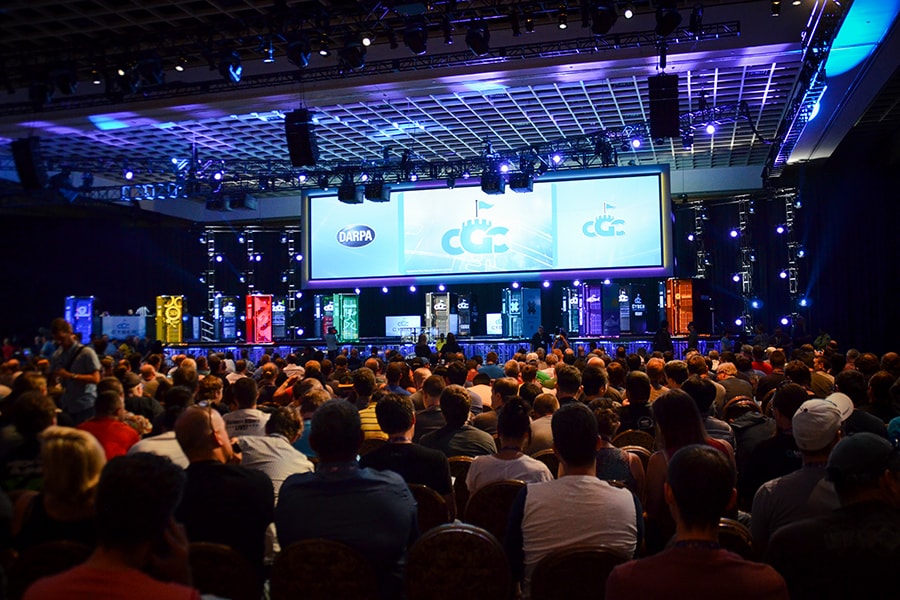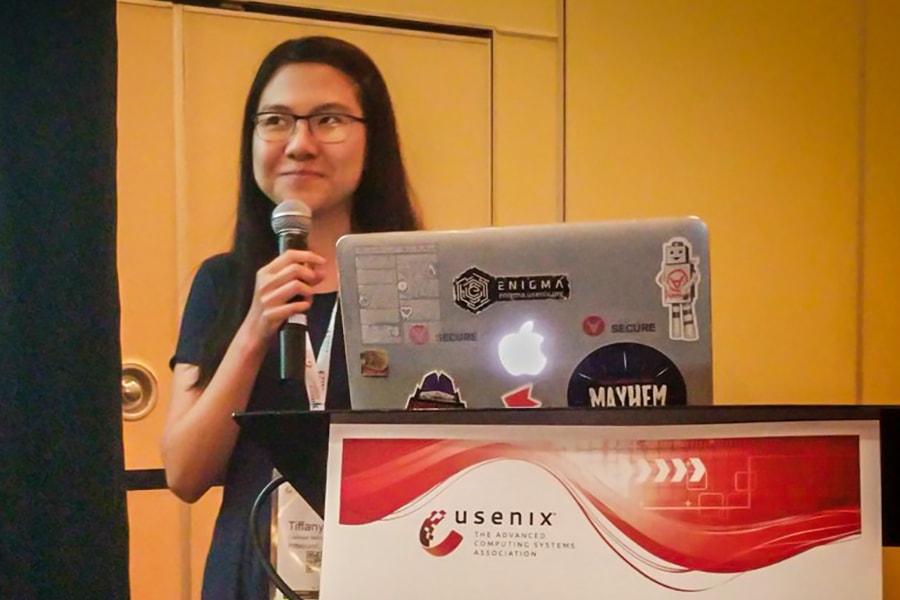
Overcoming the Human Bottleneck with Autonomy
On a blisteringly hot Thursday afternoon in Las Vegas, thousands of people gathered in a giant, windowless auditorium and closely watched lights flicker on seven supercomputers. They stood side-by-side in a semi-arch facing the audience, while audience members pointed, took photos and whispered to each other.
On Aug. 4, 2016, the mission of cyber autonomy was declared accomplished — that is, seven supercomputers demonstrated they were capable of hacking each other, stealing virtual "flags" while trying to protect their own, completely without human intervention. CMU spinoff ForAllSecure, led by Electrical and Computer Engineering Professor David Brumley, took home the $2 million prize for building the supercomputer that scored the most points in the competition, known as the Cyber Grand Challenge.
Meanwhile, back in Pittsburgh, one of Brumley's Ph.D. students in CyLab Security and Privacy Institute quietly hacked away at her own research in cyber autonomy.

Tiffany Bao, who graduated with a Ph.D. in Electrical and Computer Engineering studies cyber autonomy.
"We have automatic bug finding, and we have automatic patching of those bugs, but we don't have automatic strategy yet," said Tiffany Bao, a recent ECE Ph.D. graduate. "Should I patch this bug? Or should I report it to the vendor? If I patch it by myself, what is the patch about? How robust is the patch?"
Bao describes cyber autonomy as a cyber bodyguard — it's meant to protect you by analyzing your computer to figure out where vulnerabilities exist and what to do with them. The supercomputers that competed in the Cyber Grand Challenge automatically patched vulnerabilities they found, but Bao's work focuses on enabling these systems to come up with more complex strategies, when automatically patching isn't necessarily the best option.
"Given the increasing number of programs and the increasing amount of code, and as a result, the increasing amount of vulnerabilities, how are we going to react?" Bao said. "We are going to come across this challenge of human bottleneck in deciding how to deal with vulnerabilities in the future. This is why we need autonomy."
In the short term, Bao said she hopes to continue to gain a more comprehensive understanding of the security world, which will help inform her development of cyber autonomy strategy. How criminal hackers behave and what motivates them all can affect a particular strategy taken for a particular software bug.
"For instance, if you report a vulnerability to a software vendor and they send out a patch, the patch itself could reveal information about the vulnerability," Bao said. "Then the patch attracts attackers to attack other people before those people apply the patch. For each vulnerability, there should be a different strategy based on many factors."
In the long term, Bao said she hopes cyber autonomy will be applied to real-world, commonly used systems such as web browsers, and become more practical to use in daily life.
Bao recently defended her Ph.D. thesis and is moving to Arizona where she will begin as an assistant professor at Arizona State University this fall.
"I'm thrilled by the simplicity of the work," Bao said. "It turns out that work in cyber autonomy is not that complex. It's so simple, and I like simple. It's beautiful. It's elegant."